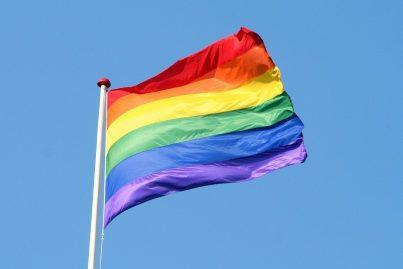The Indian government should support a comprehensive law guaranteeing equal rights and non-discrimination to transgender persons, consistent with India’s international human rights obligations, the ICJ said today.
This law must be developed and passed after adequate consultation with the transgender community in India, the Geneva-based organization added.
“The transgender community in India has faced stigma, discrimination and violence for years,” said Sam Zarifi, ICJ’s Asia-Pacific Director. “It is time for the Indian Parliament to pass comprehensive anti-discrimination legislation as an essential first step towards guaranteeing the transgender community’s internationally recognized, and constitutionally protected, human rights.”
Earlier this year, the Rajya Sabha (Upper House of the Indian Parliament) passed the Rights of Transgender Persons Bill, 2014, a private member’s Bill, that is, a bill introduced by a Member of Parliament rather than the Government.
The Bill guaranteed a wide range of rights to transgender individuals, including the right to be free from discrimination, the right to life and personal liberty, the right to protection from abuse, violence and exploitation, as well as equality in educational opportunities, employment, social security, and health care.
The Lok Sabha (Lower house of the Indian Parliament) will discuss a revised version of this Bill in the current session. The Government’s Ministry of Social Justice and Empowerment is reportedly developing its own draft.
“Any transgender rights legislation must fully comply with India’s international human rights obligations,” Zarifi added. “An essential element of this is that the Indian government must ensure that the transgender community participates in, and is meaningfully consulted on, the new law’s provisions.”
India has ratified several international instruments, including the International Covenant on Civil and Political Rights, the International Covenant on Economic, Social and Cultural Rights and the Convention on the Elimination of all forms of Discrimination against Women. They prohibit discrimination and guarantee full equality for everyone, including transgender people.
Successive pronouncements by international bodies, including the UN, have affirmed that these rights apply to transgender persons.
The Yogyakarta Principles – which reflect the specific application of international human rights law in the context of sexual orientation and gender identity – recognize transgender people’s human rights, including the right to equality before the law, equal protection of the law and the principle of non-discrimination, as well as the right to self-defined sexual orientation and gender identity, the right to expression, to privacy, to health, to housing, to education, and the right to participate in policies affecting one’s welfare.
India’s transgender rights Bill should respect, protect and fulfill this range of rights. It should also ensure that the definition of who constitutes a transgender person, as well as the process of determining this, is consistent with international standards, the ICJ said.
In 2014, in the case of National Legal Services Authority v Union of India (NALSA), the Indian Supreme Court recognized transgender persons’ right to self-identification and to the legal recognition of their gender identity. However, a year after the Supreme Court’s judgment, its directions are yet to be effectively implemented, making the passage of a comprehensive bill on transgender persons’ human rights all the more crucial. At the same time, the legislative process culminating in the adoption of the legislation needs to be adequately consultative.
“A comprehensive transgender rights bill is long overdue in India,” Zarifi said. “It is crucial that the Indian government take advantage of the current political momentum to reaffirm the rights of transgender persons, and pass a strong and progressive law.”
Contact:
Sanhita Ambast, ICJ International Legal Adviser (Delhi), t: +91 9810962193; e: Sanhita.ambast(a)icj.org
Background
A report by India’s Ministry of Social Justice and Empowerment – Report of the Expert Committee on the Issues relating to Transgender Persons –has acknowledged the range and impact of discrimination faced by the transgender community in India.
It makes note of the stigma, discrimination and violence they face from their families, communities, and state institutions, including the police. It also highlights the difficulties faced by them in accessing services like housing and education.
In the NALSA case, the Supreme Court found that discrimination faced by the transgender community in India violated the rights to equality, non-discrimination, free speech and expression, and life in the Indian constitution. The Court gave specific directions to address this discrimination.
It also noted that the absence of “suitable legislation protecting the rights of the members of the transgender community” has resulted in their facing discrimination in various areas. A clarification petition, filed by the government, regarding this case is currently pending at the Supreme Court.
Following the Supreme Court’s 2013 NALSA judgment, several states have put in place progressive policies to address the discrimination faced by transgender groups.
However, the implementation of this judgment is far from adequate, and a lot more needs to be done.
A 2011 Report of the United Nations High Commissioner for Human Rights has recommended that states “Enact comprehensive anti-discrimination legislation that includes discrimination on grounds of sexual orientation and gender identity among prohibited grounds and recognizes intersecting forms of discrimination”.
It also asked states to “Facilitate legal recognition of the preferred gender of transgender persons”.
In its 2015 report, the United Nations High Commissioner for Human Rights recommended that anti-discrimination legislation should “include[s] sexual orientation and gender identity among prohibited grounds, and also protect[s] intersex persons from discrimination” and that “LGBT and intersex persons and organizations [should be] consulted with regard to legislation and policies that have an impact on their rights”.




